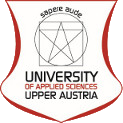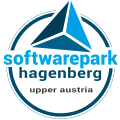Logistics Optimisation in Steel Industry
Funded by: FFG
Partners:
- voestalpine Stahl GmbH
- PROFACTOR GmbH
- PSI Metals
Background / Problem:
To retain the production facilities for semi-finished steel products in Europe, companies are
specializing in high quality products and adaptive processes to flexibly respond to customer
requests. Higher quality results in more stringent process requirements for processing,
transport and storage of semi-finished products. The physical processes in steel
manufacturing imply that higher quality leads to disproportionately greater volatility in
production due to dynamic process changes for rectification, storage places where sensible
cooling processes are taking place etc. The processes of warehouse and transport logistics
interconnect production with customer demands. In this context, the internal logistics
becomes the crucial factor of competitiveness for a resilient (robust, flexible, adaptive)
production.
Objectives / Methods:
The overall goal is to explore an information system for decision support that facilitates steel
industry in manufacturing high quality semi-finished steel products by resilient transport and
storage processes.
In LOISI first a Performance Measurement System (PMS) for resilience in the manufacturing
of semi-finished steel products and the measurement of required performance indicators will
be researched.
This PSM is used for the evaluation of strategies of transport and warehouse logistics. Due
to the high dynamics of the processes and the complexity of the relationships between
manufacturing processes, transportation, and storage, decision makers need support in the
identification and selection of optimal strategies for a given workload. Simulation models are
necessary to solve problems with this dynamics and complexity for making logistics
strategies comparable. By using metaheuristic optimisation methods, strategies can be
optimized for resilience.
The integration of these methods will be evaluated for their usefulness in a realistic scenario
of project partner VASD. For the evaluation and iterative improvement of the procedures and
methods to be developed, the production of semi-finished steel components envisioned for
2021 has been chosen.
Results / Findings:
Resilience is formalized for internal logistic systems. Strategies for warehouse and transport
logistics optimized for the production of semi-finished steel products. The high complexity
and dynamics are addressed by simulation models, which form the basis supporting
decision-makers. The models are designed to integratively and effectively provide decision
support. The approach, models and optimisation algorithms are evaluated in a realistic future
scenario of VASD in 2021.


